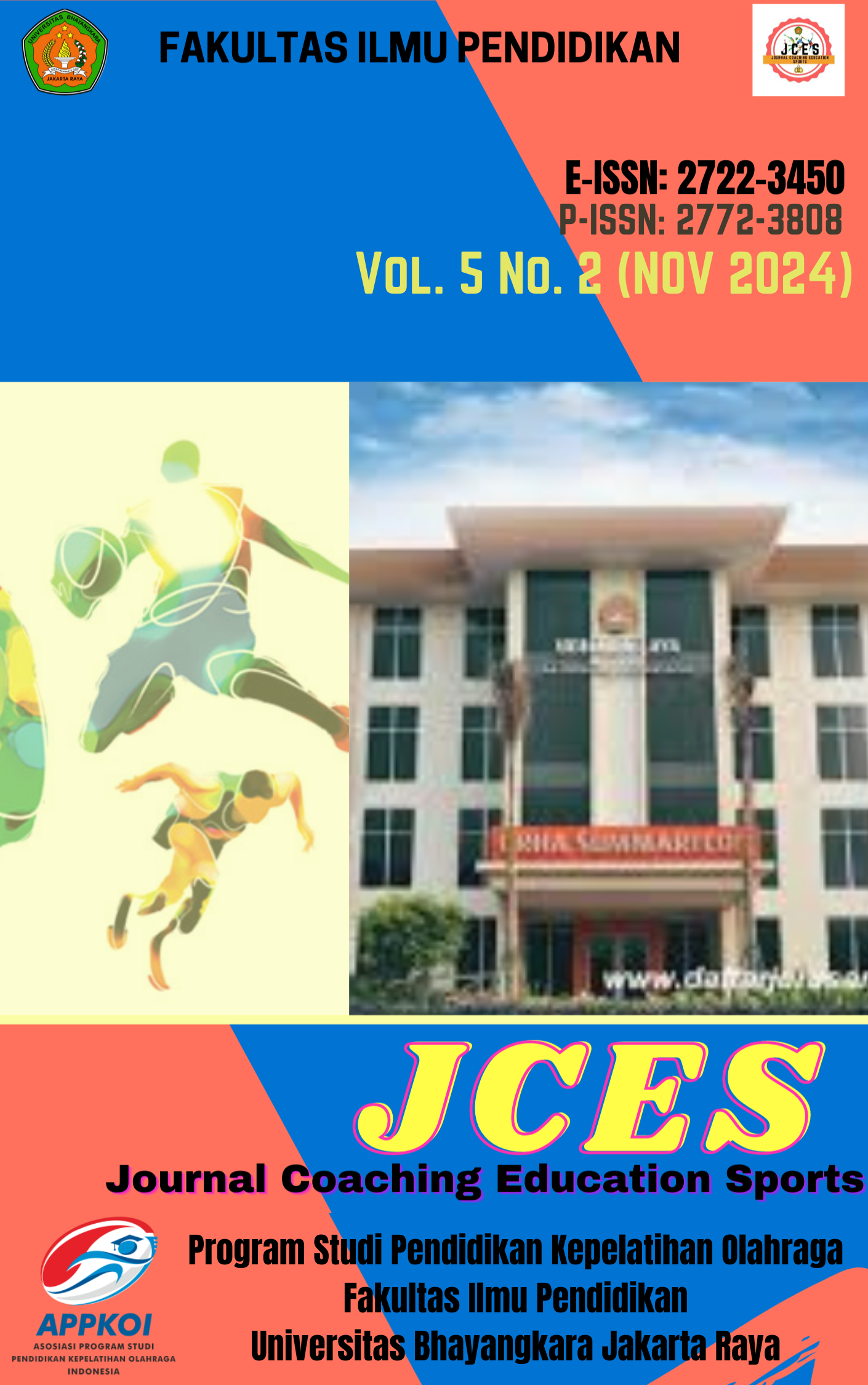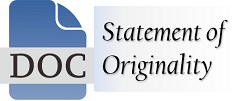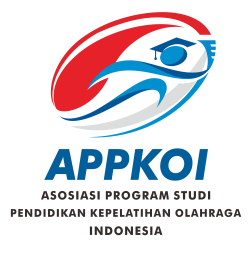Readiness Of Leaders, Teachers, Parents, And Students In Complying With Regulations In Inclusive Schools: A Study On Sports Education
DOI:
https://doi.org/10.31599/nt37jb30Keywords:
Inclusive Schools, Sports Education, Regulation, Readiness, Literature ReviewAbstract
Inclusive schools are a real implementation of the commitment to fair and equal education for all students, including those with special needs. One important aspect of inclusive schools is sports education, which is a medium for students' physical, social, and emotional development. This study aims to analyze the readiness of various parties—school leaders, teachers, parents, and students—in complying with the obligations of laws and regulations related to the implementation of inclusive schools, especially in the context of sports education. The method used is a literature review, by analyzing various sources of scientific literature, government policies, and relevant laws and regulations. The results of the study show that the readiness of each party varies greatly and is influenced by factors such as understanding the regulations, teacher competence in adapting inclusive sports teaching methods, parental support in accompanying children, and student acceptance of diversity in the learning environment. In addition, it was found that existing regulations still need strengthening in terms of socialization and technical implementation in the field. This study concludes that the success of inclusive schools, especially in sports education, is highly dependent on the synergy of all parties in understanding and carrying out their responsibilities in accordance with applicable regulations. Further recommendations include teacher training, outreach programs for parents, and the development of inclusive sports education modules.
Downloads
References
Adiarti, W. (2014). Implementation of Inclusive Education Through Inclusive Class Management Strategy for Kindergarten Teachers in Ngalian District, SEMARANG City. 12(1).
Aisyah, S., Sania, S., & Habibi, I. (2024). Analysis of the Implementation of Democratic Leadership Style of School Principals in Educational Institutions 9(1).
Anderson, J., & Ronksley-Pavia, M. (2020). Inclusive education in physical education: Challenges and opportunities. International Journal of Inclusive Education, 24(3), 251-265.https://doi.org/10.1080/13603116.2019.1614149
Avramidis, E., & Norwich, B. (2002). Teachers' attitudes towards integration/inclusion: A literature review. European Journal of Special Needs Education, 17(2), 129–147. https://doi.org/10.1080/08856250210129056
Brewer, C. (2010). Servant leadership: A literature review. Online journal of workforce education and development. 4(2). https://opensiuc.lib.siu.edu/ojwed/vol4/iss2/3/
Cakraningrat, B., & Fakhruddiana, F. (2015). Learning Readiness of Deaf Students Following Inclusive Education. HUMANITAS, 12(2). https://doi.org/10.26555/humanitas.v12i2.3826
Evanjeli, LA (2021). Students' Knowledge and Attitudes towards Inclusion in Higher Education. Jurnal Cakrawala Pendidikan, 40(1), 253–264. https://doi.org/10.21831/cp.v40i1.36150
Hidayat, E., Pardosi, A., & Zulkarnaen, I. (2023). The Effectiveness of Principal Leadership in the Implementation of Independent Curriculum. Journal of Teacher Studies and Learning, 6(1), 9–18. https://doi.org/10.30605/jsgp.6.1.2023.2339
Hyassat, M., Al-Bakar, A., Al-Makahleh, A., & al-Zyoud, N. (2024). Special Education Teachers' Perceptions of Parental Involvement in Inclusive Education. Educational Sciences, 14(3), 294. https://doi.org/10.3390/educsci14030294
Jones, L., & Kennedy, E. (2022). Effective Technology Tools for School Leadership: Understanding Digital and Data-Driven Strategies. In Effective Technology Tools for School Leadership: Understanding Digital and Data-Driven Strategies. https://doi.org/10.4324/9781003269472
Kuwait University, Al-Shammari, Z., Faulkner, P. E., & Forlin, C. (2019). Theory-Based Inclusive Education Practices. Education Quarterly Reviews, 2(2). https://doi.org/10.31014/aior.1993.02.02.73
Mohammad Ayub Khan & Laurie Smith Law. (2015). An Integrative Approach to Curriculum Development in Higher Education in the United States: A Theoretical Framework. International Studies in Education, 8(3). https://doi.org/doi:10.5539/ies.v8n3p66
Mujiafiat, KA, & Yoenanto, NH (2023). Teacher Readiness in Implementing Inclusive Education. EDUKATIF: Journal of Educational Sciences, 5(2), 1108–1116. https://doi.org/10.31004/edukatif.v5i2.4918
Murtiningsih, R., Suryani, N., & Putra, RA (2022). Challenges and opportunities for sports education in inclusive schools. Journal of Special Education, 18(2), 45-58.
Muslimah Hikmah Wening & Achadi Budi Santosa. (2020). Basic Leadership Strategies in Facing the Digital Era 4.0. JMKSP (Journal of Management, Leadership, and Supervision Education), 5(1).
Volume 2, Issue 1, January-June 2020. 2(1).
Prastiwi, MA, & Widodo, A. (2023). The Role of Madrasah Principal Leadership in the Era 5.0, Education and Technology, in 21st Century Competence. PRIMER: Multidisciplinary Scientific Journal, 1(5), 536–544. https://doi.org/10.55681/primer.v1i5.211
Putri, FA, Bramasta, D., & Hawanti, S. (2020). Literature Study on Improving Students' Critical Thinking Skills in Learning Using the Power of Two Learning Model in Elementary Schools. 6(2).
Rofiah, NH, & Kurniawan, MR (2017). Teacher Readiness in Implementing 12-Year Compulsory Education in Inclusive Schools.
Rohmad, B., & Suriansyah, A. (2023). Alignment of Independent Curriculum in Inclusive Education in Banjarmasin Kindergarten.
Sari, ZP, Sarofah, R., & Fadli, Y. (2022). Implementation of Inclusive Education in Indonesia: Challenges and Achievements. Journal of Public Policy, 8(4), 264. https://doi.org/10.35308/jpp.v8i4.5420
Septiyani, P. (2021). Character education and teacher readiness for children with special needs in inclusive education.
Shofa, MF (2018). Implementation of Inclusive Education Management at PAUD Inklusi Saymara Kartasura. At-Tarbawi: Journal of Islamic Education Studies, 3(2). https://doi.org/10.22515/attarbawi.v3i2.1337
Slee, R. (2011). The irregular school: Exclusion, schooling and inclusive education. Routledge.
Directorate General of Teachers and Education Personnel, Ministry of Education, Culture, Research, and Technology of the Republic of Indonesia.
Utari, S., & Hadi, Moh. M.(2020). Democratic Leadership Style of Yogyakarta City Library (Case Study). Jurnal Pustaka Ilmiah, 6(1), 994. https://doi.org/10.20961/jpi.v6i1.41095
Wardany, OF, & Ulfa, DA (2022). Teacher readiness in organizing inclusive classes at MI NW Lendang Penyonggok, Lombok.
Wardhani, MK (2020). Perception of Prospective Teachers and Readiness to Teach Children with Special Needs in the Context of Inclusive Schools. Scholaria: Journal of Education and Culture, 10(2), 152–161. https://doi.org/10.24246/j.js.2020.v10.i2.p152-161
Yanti, F. (2021). The Influence of the Principal's Democratic Leadership Style on Teacher Competence. 6.
Downloads
Published
Issue
Section
License
Copyright (c) 2024 Nadia Jasmine, Masduki Ahmad, Suryadi

This work is licensed under a Creative Commons Attribution 4.0 International License.






.png)







